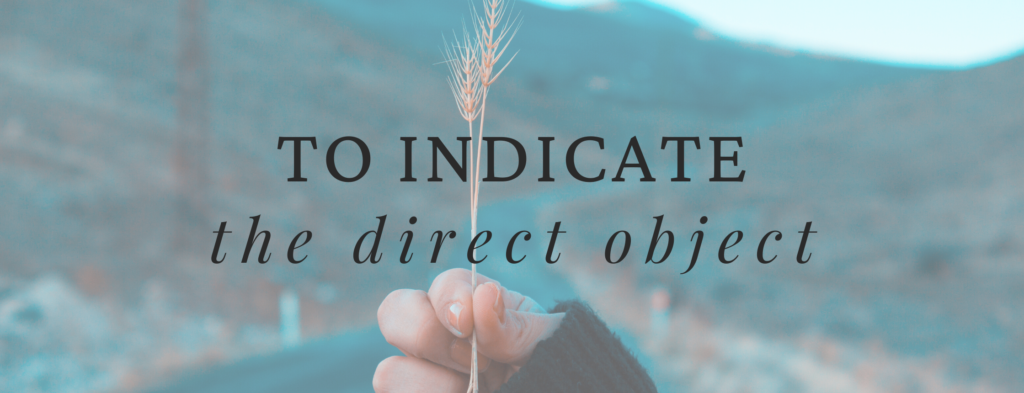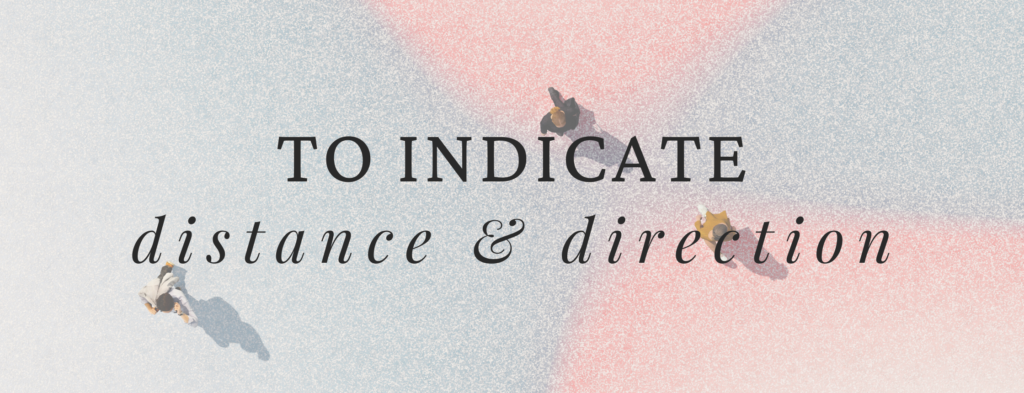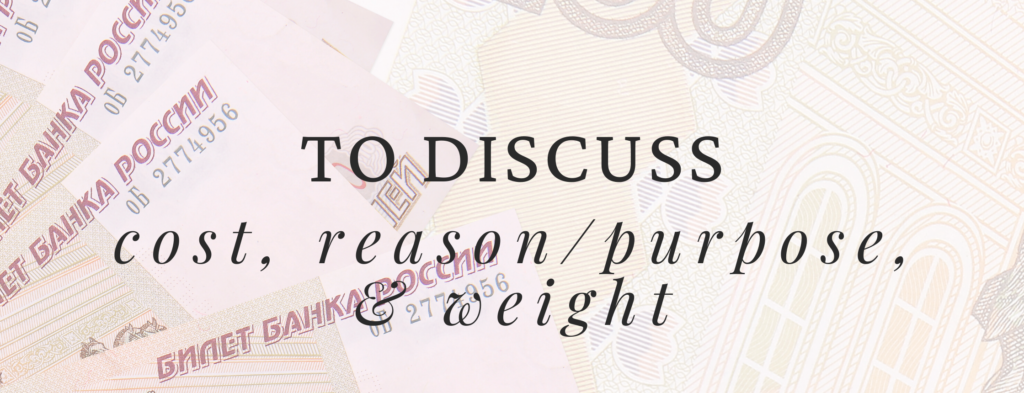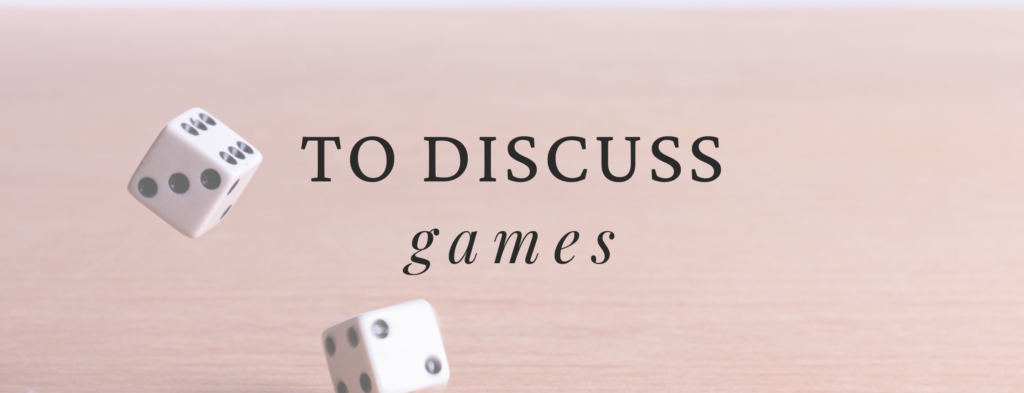

A Complete Guide to the Accusative Case in Russian
Today’s guide will teach you all about the accusative case in Russian! If you’re familiar with the Russian Case System, you know that the accusative case is one of six. The main function of the accusative case is to indicate the direct object (i.e. the person or thing, upon which the subject is “acting”) in a sentence, but, as you’ll see below, there are a few other instances when using the accusative case is necessary.
Before we dive into the details, here is a basic example of the effects of the accusative case. Take the word “машина” in Russian (car) – It ends in an “а” so we know that it is a feminine noun. If we have a situation in which “машина” is the direct object, we must use the accusative case. If you look at the endings chart below, you’ll see that feminine nouns that end in “а” change to “у“. So, you can see that change in the following example in which “машина” is the direct object (of the verb хотеть): Я хочу красуную машину. Note how the car’s adjective “красная” also changed endings.
Last updated: 7/24/2023
In addition to gender and quantity, another important thing to keep in mind with the accusative case is that it also distinguishes between animate vs. inanimate objects. This means that the endings will differ between the direct objects acted upon by the accusative case if the object is alive (i.e. people or animals) or not alive (i.e. furniture, plants, etc.).
So, those are the basics of the accusative case. Now, let’s dive in and learn the endings for nouns and adjectives, study the functions of the accusative case (i.e. when we use it), and then wrap it up with some practice!
For information on other Russian cases, check out my guides: Prepositional, Dative, Genitive
Давайте начнём!
The Accusative Case in Russian

How to Form the Accusative Case in Russian
Adjective and Noun Endings
| Gender + Type | Singular | Plural | ||||
|---|---|---|---|---|---|---|
| Adj. | Noun | Adj. | Noun | |||
| Masculine | Animate | -consonant → –ого -ш, щ → –его |
-consonant → +а -й → –я -ь → –я |
-consonant → –ых -к, г, х, ж, ш, щ, ч → –их |
consonant → –ов ж, ш, щ, ч, ь → –ей -й → –ев |
|
| Inanimate | no change (-ый / -ий) |
no change (-consonant / -й / -ь) |
no change (-ые / -ие) |
no change (-ы / -и) |
||
| Feminine | Animate | -ая → –ую -яя → –юю |
-а → –у -я → –ю -ь → –ь |
-consonant → –ых -к, г, х, ж, ш, щ, ч → –их |
а, я → drop the last letter* ия → ий ь → ей |
|
| Inanimate | (no change) –ые / –ие |
no change (-ы / -и) |
||||
| Neuter | no change (-ое / -ее) |
no change (-о / -е / -ие) |
no change (-ые / -ие) |
no change (-ы / -и) |
||
Personal Pronouns
| Nominative | Accusative |
|---|---|
| Я | Меня |
| Ты | Тебя |
| Он / Она | Его / Её |
| Мы | Нас |
| Вы | Вас |
| Они | Их |
Possessive Pronouns
| Masculine, Neuter | Feminine | Plural |
|---|---|---|
| anim. мой, моё → моего inanim. мой, моё |
моя → мою | anim. мои → моих inanim. мои |
| anim. твой, твоё → твоего inanim. твой, твоё |
твоя → твою |
anim. твои → твоих inanim. твои |
| anim. наш, наше → нашего inanim. наш, наше |
наша → нашу |
anim. наши → наших inanim. наши |
| anim. ваш, ваше → вашего inanim. ваш, ваше |
ваша → вашу | anim. ваши → ваших inanim. ваши |
| её and его do not change | ||

When to Use the Accusative Case in Russian

1. To indicate the Direct Object
Что? – What?
Кого? – Whom?
- Я пригото́вила у́жин. – I cooked dinner.
- Я его́ ждала́ три́дцать мину́т. – I waited for him for thirty minutes.
- Да́йте мне ча́шку ко́фе. – Give me a cup of coffee.
- Он сразу узна́л её по её го́лосу. – He immediately recognized her by her voice.
- Я люблю́ э́то кре́сло. – I love this armchair.
Common verbs
- покупа́ть / купи́ть – to buy
- вспомина́ть / вспо́мнить – to remember; to recall
- гото́вить / пригото́вить – to cook
- изуча́ть / изучи́ть – to buy
- де́лать / сде́лать – to do
- чита́ть / прочита́ть – to read
- слу́шать / послу́шать – to listen
- знать / узна́ть – to know
- плати́ть / заплати́ть – to pay
- писа́ть / написа́ть – to write
- получа́ть / получи́ть – to receive
- встреча́ть / встре́тить – to meet
- теря́ть / потеря́ть – to lose
- брать / взять – to take
- люби́ть – to love
- смотре́ть / посмотре́ть – to show
- забыва́ть / забы́ть – to forget
- понима́ть / поня́ть – to understand
- ви́деть / уви́деть – to see
- ждать / подожда́ть – to wait

2. To Indicate Distance and Direction
Как далеко? – How far?
Сколько миль / километров? – How many miles / kilometers?
- В тот день мы прошли́ де́сять миль. – We walked ten miles that day.
- Сего́дня я собира́юсь пробежа́ть пятнадцать километров. – Today, I plan to run 15 kilometers.
Куда? – (To) Where?
+ Prepositions
- во что? – to/in what?
- на что? – to/in what?
- че́рез что? – through/across what?
- за что? – behind/around what?
- под что? – under what?
- Я е́ду домо́й. – I’m going home.
- Мы идём в магази́н. – We are going to the store.
- Вста́ньте в круг и возьми́тесь за руки! – Stand in a circle and hold hands.
- Э́тим летом мы отпра́вимся в горы и на мо́ре. – This summer we’ll go to the mountains and to the sea.
- Давай перейдём через доро́гу. – Let’s cross the street.
- Он заверну́л за у́гол. – He turned the corner.
- Она спря́талась под стол. – She hid under the table.
Common verbs
Verbs of Motion
- ходи́ть / идти́ – to go (by foot)
- е́здить / е́хать – to go, to drive (by vehicle)
- бе́гать / бежа́ть – to run
- лета́ть / лете́ть – to fly
- пла́вать / плыть – to swim
- ла́зить / лезть – to climb
- по́лзать / ползти́ – to crawl
- носи́ть / нести́ – to carry, to bring (by foot)
- води́ть / вести́ – to lead (by foot)
- вози́ть / везти́ – to bring, to transport (by vehicle)
- гоня́ть / гнать – to chase
- ката́ть / кати́ть – to ride, to roll
- таска́ть / тащи́ть – to drag
Verbs of Placement
- класть / положи́ть – to put (horizontally)
- ста́вить / поста́вить – to put (vertically)
- ве́шать / пове́сить – to hang
Other
- отправля́ться / отпра́виться – to go, send oneself
- смотре́ть / посмотре́ть – to look
- гляде́ть / гля́нуть – to glance

3. To Indicate Time
Как часто? – How often?
- Ка́ждую ночь у меня один и тот же ужа́сный сон. – Every night I have the same terrible dream.
Как долго? – How long?
+ Prepositions
- За ско́лько вре́мени? – In what amount of time?
- На ско́лько вре́мени? – For how long? (for planned events)
- Подожди́ секу́нду. – Wait a second.
- Что ты сде́лал с мое́й ру́чкой? Она была́ здесь мину́ту назад. – What did you do with my pen? It was here a minute ago.
- Э́то за́няло весь ве́чер. – It took all evening.
- Я провёл це́лый день за чте́нием э́того рома́на. – What did you do with my pen? It was here a minute ago.
- Они зараба́тывают доста́точно де́нег за неде́лю, чтобы купи́ть дом. – They earn enough money in one week to buy a house.
- Он уе́хал на ме́сяц. – He left for a month.
Когда? – When?
+ Prepositions
- В како́й день (неде́ли)? – On which day (of the week)?
- Во ско́лько? – At what time?
- Че́рез ско́лько вре́мени? – In/After how long?
- В суббо́ту мы пошли́ в кино́, а потом в рестора́н. – On Saturday we went to the movies, then to the restaurant.
- Встре́тимся в фойе́ в три часа. – I’ll meet you in the lobby at three o’clock.
- Он верну́лся обратно через два часа. – He came back after two hours.

4. To Indicate Cost, Reason/Purpose, and Weight
Ско́лько сто́ит? – How much does it cost?
- Чай стоит два евро. – The tea costs two euros.
За что́? – For what? Why?
- Большо́е спасибо за вашу по́мощь. – Wait a second.
- Прости́ за всё, что я тебе сде́лала. – I’m sorry for everything I’ve done to you.
- Пожалуйста, извините за опозда́ние. – Please pardon me for coming late.
На что́? – For what? On what? (about spending money)
- Светлана откла́дывает де́ньги на пое́здку в Япо́нию. – Svetlana is setting aside money for a trip to Japan.
- Я коплю́ де́ньги на поку́пку но́вого компью́тера. – I am saving money in order to buy a new computer.
- Я потра́тил все её де́ньги на маши́ну. – I spent all her money on a car.
Ско́лько ве́сит? – How much does it weigh?
- Он ве́сит семьдесят килограммов. – He weighs 70 kilograms.

5. To Talk About Games
Во что вы игра́ете? – What are you playing / What do you play?
- Мы часто игра́ем в шахматы. – We often play chess.
- Он игра́ет в пля́жный волейбо́л. – He plays beach volleyball.
- Он лю́бит игра́ть в ка́рты. – He loves to play cards.
- Я люблю́ игра́ть в насто́льные игры. – I love to play board games.

Let’s practice!

Questions?
Comment below any questions you have or write your own examples using the accusative case! Need some more help? Check out these videos that excellently explain how and when to use the accusative case.
In need of a better way to organize your language notes? Check out my planner below!
Learn to speak russian
Travel with ease & dive into the culture, history & lifestyle of post-Soviet countries
free russian learning materials
Melissa
Get the Goods
Head over to the Language & Travel Shop to check out my favorite goodies I use for learning Russian and traveling! I've compiled all my favorite products I use when #onthebloc so that you can benefit from them when you travel abroad. Help yourself prepare and support this blog at the same time :) Счастливого пути!
carry-on goods
gifts for travelers
photography
apparel & accessories
textbooks & readers
luggage & bags
categories
#oTB essentials
Russian-Speaking Travel Destinations
use your new russian skills in real life!
Belarus
EASTERN EUROPE
central Asia
central Asia
Eurasia
Russia
Kyrgyzstan
armenia
Moldova
Kazakhstan
eastern europe
read »
read »
read »
read »
read »
read »
The caucasus